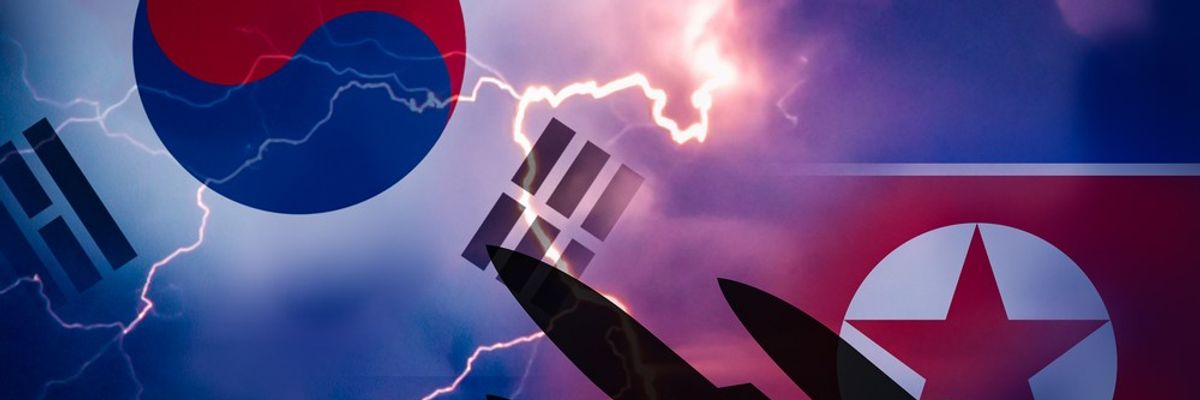Today’s commemoration of the 67th anniversary of Memorial Day in South Korea took a somber tone, as it came on the heels of eight ballistic missile launches by North Korea yesterday and eight ballistic missile launches by the U.S. and South Korean militaries earlier today.
Standing before the Seoul National Cemetery, South Korean President Yoon Suk Yeol vowed to respond “firmly and strictly” (“단호하고 엄정하게”) to any provocations from North Korea. Yoon described North Korea’s nuclear weapons and missiles as not only a threat to the Korean Peninsula but also a threat to Northeast Asia and the world.
Whether such strong words and military responses to North Korea’s missile tests will deter or provoke it remains an open question and a test for the Yoon administration, now in its third month. What is certain is that tensions will grow on the Korean Peninsula at a time when the U.S. appears distracted by the brutal and illegal invasion of Ukraine by Russia as well as countering the supposed existential threat posed by China.
To President Biden’s credit, its officials have sought to delink the goals of denuclearization from addressing North Korea’s Covid-19 crisis. Assistant Secretary of State for East Asian and Pacific Affairs Daniel Kritenbrink noted at an event co-hosted by Center for Strategic and International Studies and the Korea Foundation in Washington that the United States “continue[s] to support efforts to provide humanitarian assistance and COVID-19 vaccines to the DPRK. We see this humanitarian crisis as separate from making progress on denuclearization and we do not and will not link the two.”
The problem is that action speaks louder than words. And unless diplomatic efforts are given adequate space to succeed, they will be drowned out by military shows of force, the latter of which plays into the North Korean government’s narrative that it is under threat and in need of nuclear weapons to survive.
As South Koreans remember those who fought to defend their nation during the Korean War, American and North Koreans would also do well to remember that while shooting missiles may seem like the right thing to do at the moment, they do nothing to address the fundamental security and political conditions on the peninsula. A true way to honor the veterans of that war would be to stop the saber-rattling and negotiate a peace treaty before missile tests become missile attacks.















